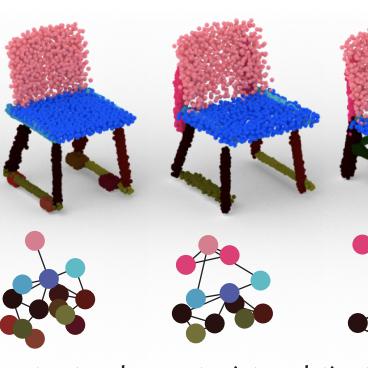Search Results for author: Namwoo Kang
Found 13 papers, 2 papers with code
Deep Generative Design for Mass Production
no code implementations • 16 Mar 2024 • Jihoon Kim, Yongmin Kwon, Namwoo Kang
Generative Design (GD) has evolved as a transformative design approach, employing advanced algorithms and AI to create diverse and innovative solutions beyond traditional constraints.
Deep Generative Model-based Synthesis of Four-bar Linkage Mechanisms with Target Conditions
1 code implementation • 22 Feb 2024 • Sumin Lee, Jihoon Kim, Namwoo Kang
The proposed model is based on a conditional generative adversarial network (cGAN) with modifications for mechanism synthesis, which is trained to learn the relationship between the requirements of a mechanism with respect to linkage lengths.
Data-Driven Physics-Informed Neural Networks: A Digital Twin Perspective
no code implementations • 5 Jan 2024 • Sunwoong Yang, Hojin Kim, Yoonpyo Hong, Kwanjung Yee, Romit Maulik, Namwoo Kang
This study explores the potential of physics-informed neural networks (PINNs) for the realization of digital twins (DT) from various perspectives.
Weighted Unsupervised Domain Adaptation Considering Geometry Features and Engineering Performance of 3D Design Data
no code implementations • 8 Sep 2023 • Seungyeon Shin, Namwoo Kang
The developed bi-weighting strategy based on the geometry features and engineering performance of engineering structures is incorporated into the training process.
Performance Comparison of Design Optimization and Deep Learning-based Inverse Design
no code implementations • 23 Aug 2023 • Minyoung Jwa, Jihoon Kim, Seungyeon Shin, Ah-hyeon Jin, Dongju Shin, Namwoo Kang
Surrogate model-based optimization has been increasingly used in the field of engineering design.
Topology Optimization via Machine Learning and Deep Learning: A Review
no code implementations • 19 Oct 2022 • Seungyeon Shin, Dongju Shin, Namwoo Kang
Topology optimization (TO) is a method of deriving an optimal design that satisfies a given load and boundary conditions within a design domain.
Adaptive Neural Network Ensemble Using Frequency Distribution
no code implementations • 19 Oct 2022 • Ungki Lee, Namwoo Kang
Neural network (NN) ensembles can reduce large prediction variance of NN and improve prediction accuracy.
Wheel Impact Test by Deep Learning: Prediction of Location and Magnitude of Maximum Stress
no code implementations • 3 Oct 2022 • Seungyeon Shin, Ah-hyeon Jin, Soyoung Yoo, Sunghee Lee, ChangGon Kim, Sungpil Heo, Namwoo Kang
The proposed model can replace the impact test in the early wheel-development stage by predicting the impact performance in real-time and can be used without domain knowledge.
Deep Learning-Based Inverse Design for Engineering Systems: Multidisciplinary Design Optimization of Automotive Brakes
no code implementations • 27 Feb 2022 • Seongsin Kim, Minyoung Jwa, Soonwook Lee, Sunghoon Park, Namwoo Kang
The braking performance of the brake system is a target performance that must be considered for vehicle development.
Explainable Artificial Intelligence for Manufacturing Cost Estimation and Machining Feature Visualization
1 code implementation • 28 Oct 2020 • Soyoung Yoo, Namwoo Kang
Using the proposed process, we can provide a design guidance to engineering designers in reducing manufacturing costs during the conceptual design phase.
Idle Vehicle Relocation Strategy through Deep Learning for Shared Autonomous Electric Vehicle System Optimization
no code implementations • 16 Oct 2020 • Seongsin Kim, Ungki Lee, Ikjin Lee, Namwoo Kang
Finally, a deep learning model using the optimal solution data is built to estimate the optimal strategy without solving relocation.
Generative Design by Reinforcement Learning: Enhancing the Diversity of Topology Optimization Designs
no code implementations • 17 Aug 2020 • Seowoo Jang, Soyoung Yoo, Namwoo Kang
To reduce the heavy computational burden of the wheel topology optimization process required by our RL formulation, we approximate the optimization process with neural networks.
Deep Generative Design: Integration of Topology Optimization and Generative Models
no code implementations • 1 Mar 2019 • Sangeun Oh, Yongsu Jung, Seongsin Kim, Ikjin Lee, Namwoo Kang
Deep learning has recently been applied to various research areas of design optimization.


